Iran's Oil and Gas Workers' Strike Grows: 20,000 Workers, 110 Companies
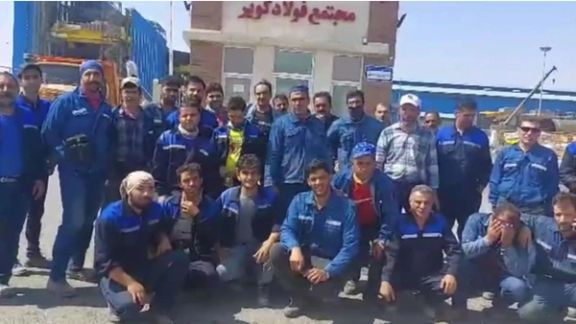
A nationwide strike by contract workers in Iran's oil and gas industry that began last week has now spread to over 110 companies, involving more than 20,000 workers.

A nationwide strike by contract workers in Iran's oil and gas industry that began last week has now spread to over 110 companies, involving more than 20,000 workers.
Launched by the unofficial Council for Organizing Oil Contract-Workers' Protests, the strike began on June 19. The workers are demanding the removal of intermediary contractors, wage increases, a 14-days-on, 14-days-off work schedule, improved dormitory conditions, and enhanced safety measures. The Council has warned that the strikes will intensify if these demands are not met.
Last week, the strike included 8,000 oil contract workers from over 60 contracting companies.
With the number of strikers now at 20,000, the protest action is rapidly gaining momentum.
These protests are part of a wave of labor unrest in Iran over delayed wages, low pay, and layoffs that have intermittently disrupted many industrial sectors since 2018.
In the past decade, many components of the oil and gas industry have been farmed out to influential regime insiders as intermediary contractors, who underpay workers and force them to work in difficult conditions. Traditionally, oil workers enjoyed the best salaries and benefits in Iran.
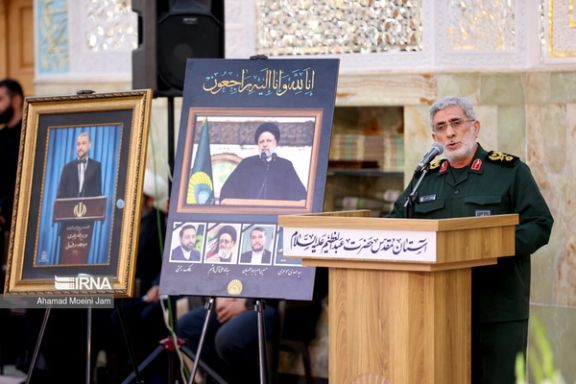
The commander of the IRGC's Quds Force, Esmail Ghaani (Qaani), has praised former Foreign Minister Hossein Amir-Abdollahian for being the voice of Iran's armed proxies abroad.
On Thursday, Ghaani said, “While everyone was trying to silence the voice of resistance and the young people of the resistance were defending themselves in the battlefield, someone spoke for them on the international stage. That person was Amir-Abdollahian, the voice of the resistance.”
The Quds Force commander’s comments come amid growing concerns of an all-out Israel-Hezbollah war. Alongside the ongoing conflict in Gaza, the heavily armed, Iran-backed Hezbollah group has been exchanging fire with Israel for over eight months.
The Quds Force is IRGC's extra-territorial wing, which controls all armed groups supported by the Islamic Republic. Its former commander was Qasem Soleimani, a notorious operator who oversaw the expansion of Iran's armed proxy groups in Iraq, Syria, Yemen and elsewhere. He was targeted in a US airstrike in 2020 in Baghdad.
Ghaani made his remarks during the fortieth-day anniversary of Amir-Abdollahian's death. He was killed alongside former President Ebrahim Raisi, in a freak helicopter crash last month. The incident has triggered a snap election to be held on Friday.
While Iran continues its anti-Western and anti-Israeli policy, Ghaani reiterated the Supreme Leader’s red line about negotiating with the US. “Today, as you prepare to elect a new president, it is crucial to choose someone who will continue the path of martyr Raisi and the heroic figures who stood firm and acted decisively,” he stated.
“These men fought against the US and demonstrated that actions can be taken without relying on the US. Be aware that those advocating for solutions through relations with the US are unwilling to fight bravely if given authority; When you speak from a position of authority and power, even the US will be compelled to yield."
On Tuesday, Supreme Leader Ali Khamenei subtly indicated his favored presidential candidate by firmly rejecting negotiations with the US.
He asserted, "Some of our politicians believe they must align themselves with one power or another, or that the path to progress necessarily leads through the US; this is a grave misconception. Those who look beyond our borders fail to recognize and value our inherent capacities; naturally, they lack the vision to utilize them."
It essentially disqualifies three of the four approved presidential candidates; Mohammad Bagher Ghalibaf, Mostafa Pourmohammadi, and Masoud Pezeshkian.
Pezeshkian, in particular, is seen as disadvantaged due to his association with former Foreign Minister Mohammad Javad Zarif, the architect of the 2015 nuclear deal (JCPOA), who advocates for dialogue with other countries, including the US, to lift current sanctions.

A group of UN special rapporteurs have called on Iran to "immediately and unconditionally" release Nobel Peace Prize laureate Narges Mohammadi, and all other female human rights defenders.
The experts, including Javaid Rehman, the UN Special Rapporteur on Human Rights in Iran, said these women are jailed for their peaceful activism, which includes defending gender equality and human rights.
Mohammadi is currently serving multiple sentences which total over 13 years in Tehran’s Evin prison for her human rights activism, including a new case brought against her over advocating for the rights of female inmates subjected to sexual offenses by government officials.
The experts condemned her unfair trials and extended sentences, including an additional year added on 18 June for "propaganda against the state."
"We are alarmed about the unfair proceedings and lengthy sentences handed to human rights defender, Narges Mohammadi, directly related to her peaceful exercise of her rights to freedom of expression and assembly in the pursuit of gender equality in Iran," the experts said.
"Unduly covering charges under the framework of 'national security' or 'propaganda against the state' in order to silence critical voices needs to stop,” they added.
The experts noted an increase in arrests of women's rights activists in recent years.
Iranian officials have warned that individuals protesting against compulsory veiling may face national security charges. "Women human rights defenders challenging the imposition of a compulsory dress code on women are acting in defense of universally guaranteed human rights. We urge the government of Iran to remember that," the experts said.
They reiterated that the use of repressive laws to criminalize freedom of expression and peaceful assembly is incompatible with Iran's international human rights obligations.
"The use of repressive legislation to criminalize the exercise of freedom of expression and peaceful assembly is incompatible with Iran’s obligations under international human rights law," they emphasized.
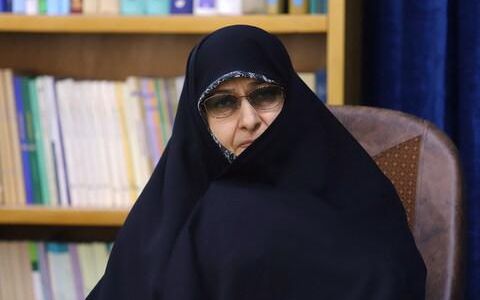
Iran's vice president for women and family affairs has revealed that late President Ebrahim Raisi had banned women from holding executive positions.
The remarks come as Ensieh Khazali herself has reached the position of vice president.
She said “executive forces and organizations are tasked with implementing their [women’s] plans under the guidance of women as operational headquarters, with women themselves serving as command and planning centers focusing on initiatives for women and families".
Ebrahim Raisi and his delegation, including foreign minister Hossein Amir-Abdollahian, died during a helicopter crash last month, triggering a snap presidential election to be held on Friday with four men running for the office.
Under Raisi, brutal crackdowns on protesters saw over 550 Iranians killed by state security forces and thousands more rounded up and imprisoned since September 2022.
It was also under his watch that hijab enforcement was strengthened after the death in morality policy custody of Mahsa Amini. Her murder led to the Woman, Life, Freedom uprising.
Last year, Raisi told the UN that Iranian women's rights were 'unparalleled' in spite of a policy the UN had the same month ,called "gender apartheid".
The Guardian Council, an unelected 12-member body that vets candidates, prohibits women from running for president in Iran despite some constitutional interpretations suggesting otherwise.
According to the Global Economic Forum's 2024 Global Gender Gap Report, Iran ranks 143rd out of 146 countries regarding gender equality.
Additionally, the Women’s Workplace Equality Index, published by the Council on Foreign Relations, places Iran among the bottom five countries regarding women’s workforce equality, alongside Sudan, Qatar, Syria, and Yemen.
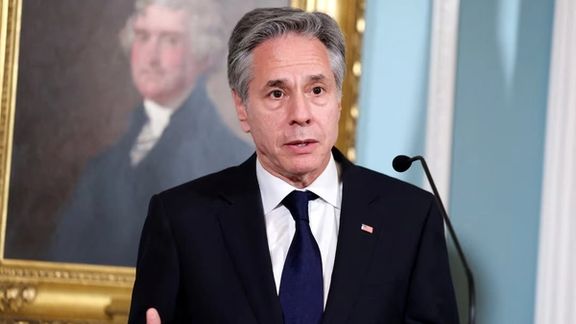
The US Department of State's latest International Religious Freedom report has revealed Iran's continued violations against religious freedoms.
Secretary of State, Antony Blinken, during the unveiling ceremony of the annual report, said that "government restrictions on religion had reached their highest global level since tracking began back in 2007".
The report, which annually assesses 200 countries, highlighted the repression of multiple minorities in Iran including the Baha'is. Only Islam, Christianity and Judaism are legal in Iran, though even Sunni Muslims face repression, along with restrictions on Jews and Christians.
Unofficial estimates suggest that more than 300,000 Baha'is live in Iran, making them the largest non-Muslim religious minority in the country and the most persecuted.
The Baha'is, in particular, suffer from systemic oppression, including arbitrary arrests, business closures, and frequent raids on their homes based on unfounded charges.
"The [Iranian] penal code provides for hudud punishments (those mandated by sharia), including amputation, flogging, and stoning. It specifies the death penalty for moharebeh ('enmity against God') and sabb al-nabi ('insulting the Prophet')," the report details, illustrating the harsh legal environment for those accused of religious crimes.
One of the most alarming aspects highlighted in the report is the variable application of the death penalty, depending on the religion of both the perpetrator and the victim, which disproportionately affects religious minorities. The report clarifies that "prevailing fatwas prescribe the death penalty for apostasy," showcasing the risks faced by individuals who deviate from the state-sanctioned religion or seek to renounce Islam.
Last year, rights group Rudaw claimed executions of the Kurdish minority had tripled, the majority of whom are Sunni muslims.
The repression extends beyond physical punishments, affecting various aspects of life for religious minorities. "The law, as typically interpreted, prohibits Muslim citizens from changing or renouncing their religious beliefs," the report states.
The 2023 report, like previous years, is compiled based on information gathered by US embassies from government officials, religious groups, NGOs, journalists, human rights observers, and other sources.
The US Commission for Religious Freedom's recommendations for 2024, list Iran as among the countries "of particular concern". "Religious freedom conditions in Iran are egregiously poor as the government continues to respond to calls for reform by systematically cracking down on religious minorities," its experts said.
"The government uses its official religious interpretation of Islam as an ongoing basis for denying freedom of religion and belief to citizens who express dissent through peaceful protest, including women and LGBTQI+ people."
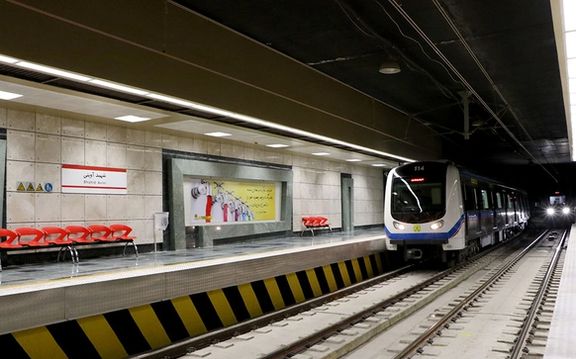
A hijab enforcer at a metro station in Shiraz, southern Iran, sexually assaulted a nine-year-old girl to "test maturity", according to human rights sources.
Lawyer Mohammad Hadi Jafarpour informed the Human Rights Activists News Agency (HRANA) that the officer aggressively touched the breasts of the child.
Enforcers then told the mother her daughter needed to wear a hijab because of her "prominent breasts."
Jafarpour, who was a witness to the incident, said there is no oversight of the hijab enforcers whose violent and sexually abusive actions haunt the country's women and girls as the regime struggles to enforce nationwide rejection of mandatory hijab laws.
“This lack of accountability severely impedes the ability to pursue legal recourse and protect citizens' rights in cases of misconduct," the lawyer said.
Hijab enforcers do not qualify as judicial officers and are only allowed to issue verbal warnings about hijab compliance.
“They lack any further authority, such as physically touching individuals, recording vehicle numbers, or taking photographs,” he explained.
In 2022, authorities introduced face recognition technology on subway CCTV cameras to photograph unveiled women. The heightened scrutiny followed the death of Mahsa Amini in hijab police custody in September 2022, which sparked widespread "Woman, Life, Freedom" protests.
Last year, Tehran municipality deployed 400 personnel to enforce hijab laws at subway stations in the capital. Iranian news sources and social media accounts documented an increased presence of officers equipped with cameras, dubbed as the "horror tunnel" for women as crackdowns on hijab only worsened in the wake of the 2022 uprising.
In recent years, hundreds of cases of state-sanctioned sexual abuse and humiliation at the hands of Iran's security forces and hijab enforcers have been publicly documented.
Activists and UN experts have argued that the increased oppression and institutionalized discrimination faced by women and girls under the Islamic regime constitutes or could amount to gender apartheid.